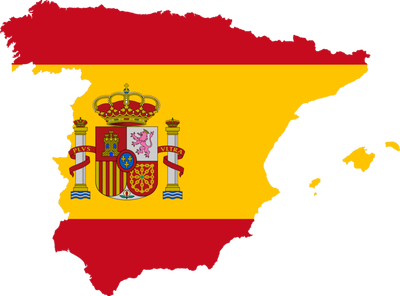Spanish is a Romance language that originated in Castile, a historic region of Spain.¹ There are approximately 406 million people whose native language is Spanish. It is the second largest native language spoken worldwide, the first being Mandarin. Spanish is part of the Ibero-Romance  group of languages. It evolved from several dialects of common Latin in Liberia after the collapse of the Western Roman Empire in the 5th century.¹
group of languages. It evolved from several dialects of common Latin in Liberia after the collapse of the Western Roman Empire in the 5th century.¹
The Spanish language evolved from colloquial Latin. This was brought to the Iberian Peninsula by the Romans during the Second Punic War in the beginning of 210 BC.¹ The first documentations of modern Spanish are from the 9th century. The Middle Ages and the modern era have had the most important influences on Spanish lexicon. Many words were borrowed from Latin through the influence of written language and the liturgical language of the Church.¹
Spanish is an inflected language. It has a two-gender noun system and about fifty conjugated forms per verb, with inflections of nouns, adjectives and determiners limited to number and gender.¹ Spanish syntax is considered right-branching. Right-branching means that subordinate or modifying constituents tend to be placed after their head words. Spanish also uses prepositions more so than other Romance languages.¹
Image source:
1. Wikimedia
Reference:
1. University of Florida. History of the Spanish Language. Retrieved May 23, 2014, from http://www.clas.ufl.edu/users/pharies/knol.html
© BrainMass Inc. brainmass.com June 29, 2024, 10:45 am ad1c9bdddf